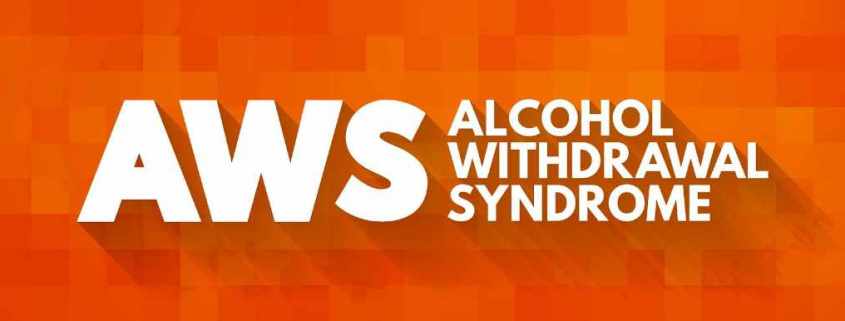Can Alcohol Withdrawal Cause Death?
Published on: January 12, 2023 | Updated on: December 18, 2025
Once you realize the need to quit drinking, you will probably find yourself facing some challenges. One of the hardest barriers to overcome is the anxiety you feel going through the withdrawal process. You may even wonder, “Can alcohol withdrawal cause death?”
The short answer to that is, yes. In a small number of cases, there are some serious adverse effects that can occur during alcohol detox. This is why detox should always be undertaken under the oversight of a medical detox team. To learn more about alcohol detox and its risks, read on.
What Happens During Alcohol Withdrawal?
It is always a good idea to become prepared for detox ahead of time. Knowing what to expect reduces fear and anxiety as you move into that first step of recovery. Also, having a team of detox experts at your side helps you face the process with more confidence.
During the intake process, the clinical staff will be able to estimate the severity of your pending detox. This helps them prepare for any adverse symptoms that may crop up. There are a few things they will be looking at. These include the history of your alcoholism, how many former attempts at detox you’ve had, your age, and your health.
During the detox, as the body adjusts to the absence of alcohol, withdrawal symptoms begin to emerge. This usually occurs about 6-12 hours after the last drink. You will go through three distinct phases of withdrawal: emerging symptoms, peak symptoms, and subsiding symptoms.
Withdrawal symptoms might include:
- Nausea and vomiting.
- Sweating
- Fever
- Headache
- Anxiety
- Agitation
- Hand tremors.
- Muscle weakness.
- Insomnia
- Disorientation
- Increased blood pressure.
- Profound fatigue.
- Mood swings.
- Shaking
- Mild seizures.
- Severe confusion.
- Hallucinations
- Suicidal thoughts.
- Delirium tremens (DTs)
What is a Medical Detox?
A medical detox team is trained to assist you with alcohol withdrawal. Their goal is to reduce discomfort, provide medical and mental health support, and observe symptoms throughout.
During the detox process, your vital signs will be closely watched. A benzo like Valium is provided to help reduce anxiety and the risk of seizures. Meds are also offered to relieve nausea, diarrhea, fever, and headache.
Emotional support is provided during medical detox as well. Mental health support helps you proceed through the detox process and not give up. The detox support team keeps the person moving forward to safely enter treatment.
There is a small risk of dangerous withdrawal symptoms occurring on days 3-4 of the detox period. These are referred to as delirium tremens or DTs. The DTs can be life threatening, further showing the need for a medical detox.
Can Alcohol Withdrawal Syndrome Cause Death?
Alcohol withdrawal syndrome, or AWS, simply refers to the spectrum of symptoms experienced when quitting alcohol. These range from mild to severe. When you stop drinking, it results in brain excitability. This is what prompts the tremors, agitation, irritability, and feelings of anxiety. Alcohol withdrawal can be managed with medication provided by a certified healthcare practitioner.
For someone with a long history of excess drinking, the possibility for severe AWS increases. These are symptoms such as hallucinations, rapid heart rate, high blood pressure, fever, and seizures. In a small subset, the DTs will occur, which are alcohol withdrawal symptoms that can cause death.
What Are the Delirium Tremens (DTs)?
When you decide to stop drinking, it can trigger a condition called the DTs. This occurs most often in people with a long history of chronic alcohol abuse. It is also more common in those who have attempted detox in the past.
The DTs is a health emergency that can emerge rather suddenly and without notice in about 5% of those in detox. Up to 15% of patients with the DTs will not survive. The DTs may emerge on days 3 or 4 of the alcohol detox. In some cases, the DTs may show up toward the end of the detox period, such as the 7th day.
These are the symptoms of the DTs:
- Fever
- Extreme tremors and shaking.
- Severe mental confusion.
- Agitation
- Paranoia
- High blood pressure.
- Hallucinations or delusions.
- Feeling like insects are crawling under the skin.
- Nightmares
- Extreme anxiety.
- Profuse sweating.
- Disorientation
- Seizures
- Heart failure.
Treatment for the DTs often involves a hospital stay. In the hospital setting, care providers can provide life saving interventions to stabilize the person. These treatments might include IV sedative infusions and hydration. Without these interventions, alcohol withdrawal can cause death.
Treatment After Detox and Withdrawal
Detox is only the beginning of your recovery journey. After you complete the detox, you will need to enter a treatment program. This is a needed step because it is in treatment where you will learn how to change your addict behaviors.
Treatment includes a variety of activities:
- Therapy. Alcohol abuse may begin first as a way to self-medicate mood disorders like depression or bipolar disorder. It is critical that the mental health piece be addressed along with the alcohol addiction. CBT can help the client identify the distorted thought patterns that led to the maladaptive behavioral response.
- Group therapy. The social aspect of recovery is a common feature in treatment programs. Sharing your personal story and experiences with others in recovery helps build social support and confidence.
- Relapse prevention. Relapse prevention planning is an important part of recovery. This process involves you listing your known triggers and then a plan of action when they are encountered. This planning can help you avoid a relapse in early recovery.
- 12-step. Most rehab programs today include the basic A.A. 12-Step program to some degree. The steps offer a framework for achieving sustained sobriety.
- Holistic methods. To round out the alcohol treatment plan, holistic activities play a pivotal role. Stress is a common trigger for relapse, so teaching you ways to relax becomes an essential coping skill. These might include yoga, meditation, art therapy, journaling, or massage.
After learning that alcohol withdrawal can cause death, the need for expert support during detox is clear. If you are struggling with alcoholism, reach out for help today.
Journey Hillside Provides Comprehensive Treatment for Alcohol Use Disorder
Journey Hillside is a leading treatment provider for people with an alcohol use disorder. To learn more about our program, please reach out to us today at (877) 414-1024.





